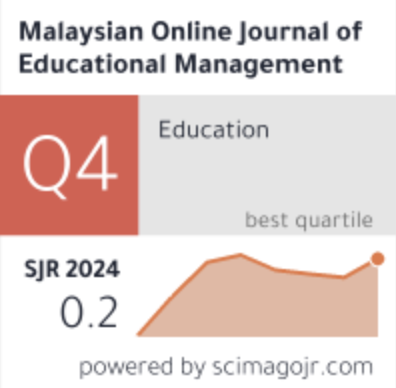ACCEPTANCE OF INFORMATION TECHNOLOGY FOR TEACHING IN NIGERIAN VOCATIONAL AND TECHNICAL EDUCATION: A CONFIRMATORY FACTOR ANALYSIS
DOI:
https://doi.org/10.22452/mojem.vol4no1.1Abstract
This study was conducted to determine the correlation among four factors influencing acceptance of IT for teaching. The study attempted to re-examine the indicators of technology acceptance theory through confirmatory factor analysis. Perceived Usefulness (PU) and Perceived Ease of Use (PEOU) of the Technology Acceptance Model was the theoretical base of the study. Construct of Computer Self-Efficacy and Facilitating Condition was tested along PU and PEOU. The participants of the study consist of one hundred and twenty-three (123) technical and vocational education teachers in selected secondary schools in Ilorin West, East and South of Kwara State, Nigeria. To ascertain the correlation among the four constructs of the study, a correlation model was proposed, and statistical analysis was conducted. The instrument reliability was ascertained. Similarly, convergent and discriminant validity was conducted through factor analysis with SPSS 16. A confirmatory factor analysis was carried out with Structural Equation Modeling. The data were equally subjected to t-test analysis to identify if vocational and technical education teacher use of IT for teaching differed by gender. The result showed that there is no difference by gender in IT use for teaching. Moreover, the results showed a significant correlation among all the factors in influencing acceptance of IT for teaching. The study has implications for all stakeholders in preventing problems associated with IT acceptance for teaching. The study also serves as a template for understanding acceptance of IT for teaching in the Nigerian school system.









